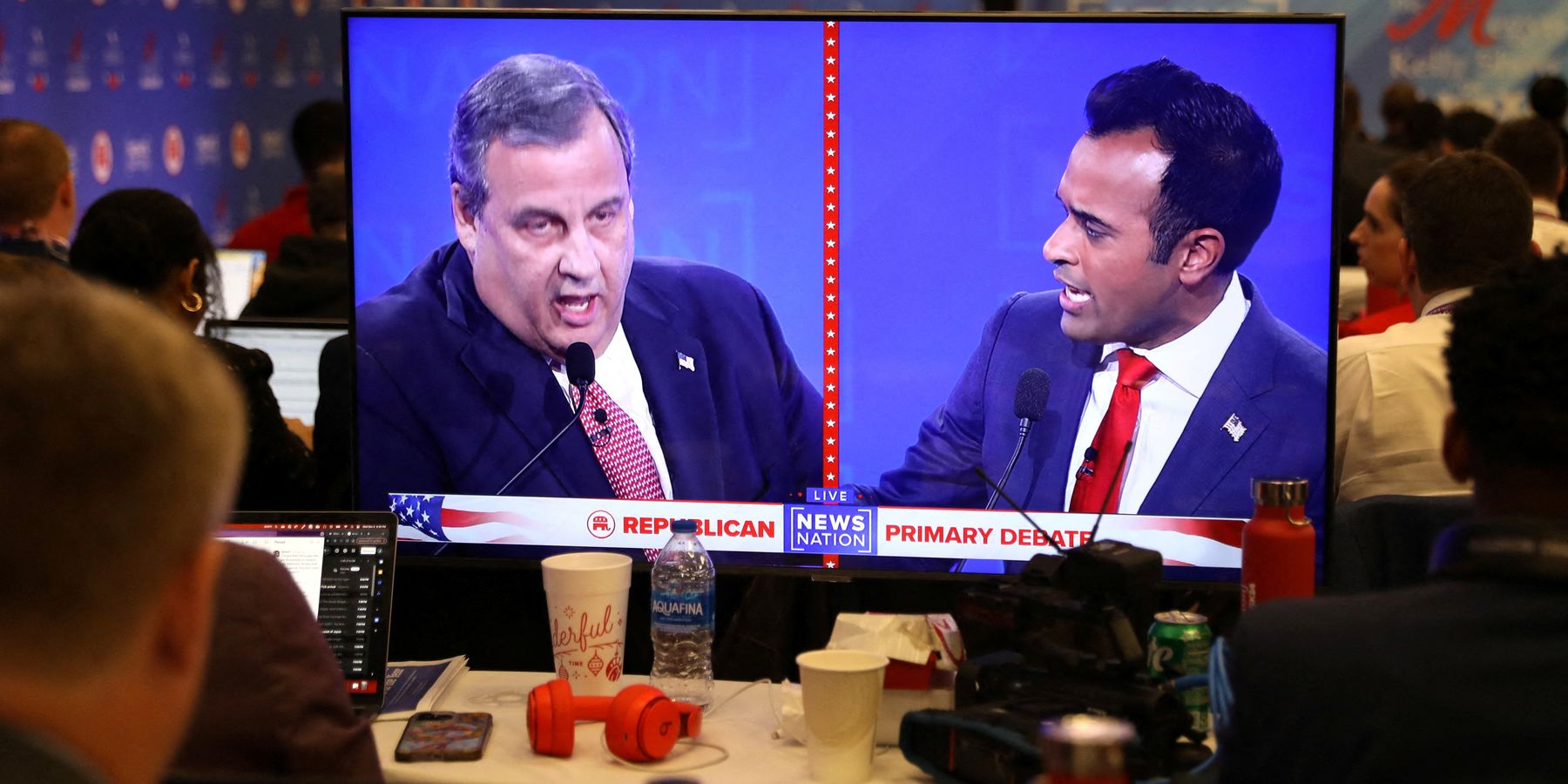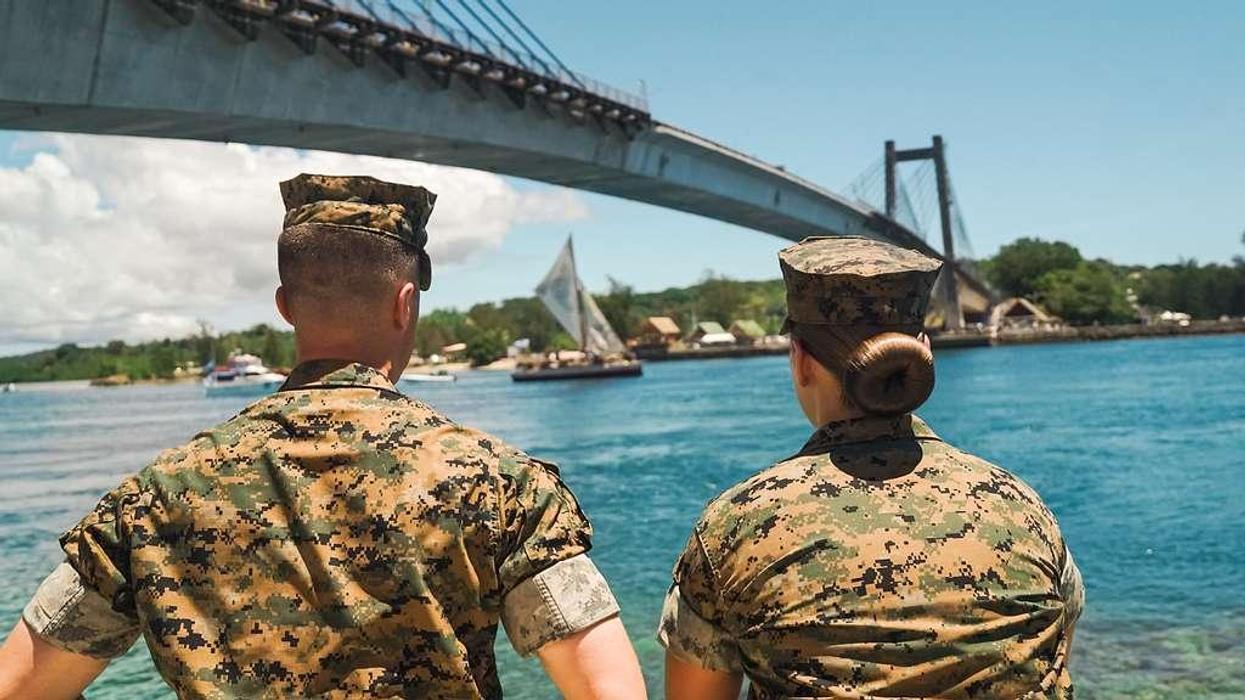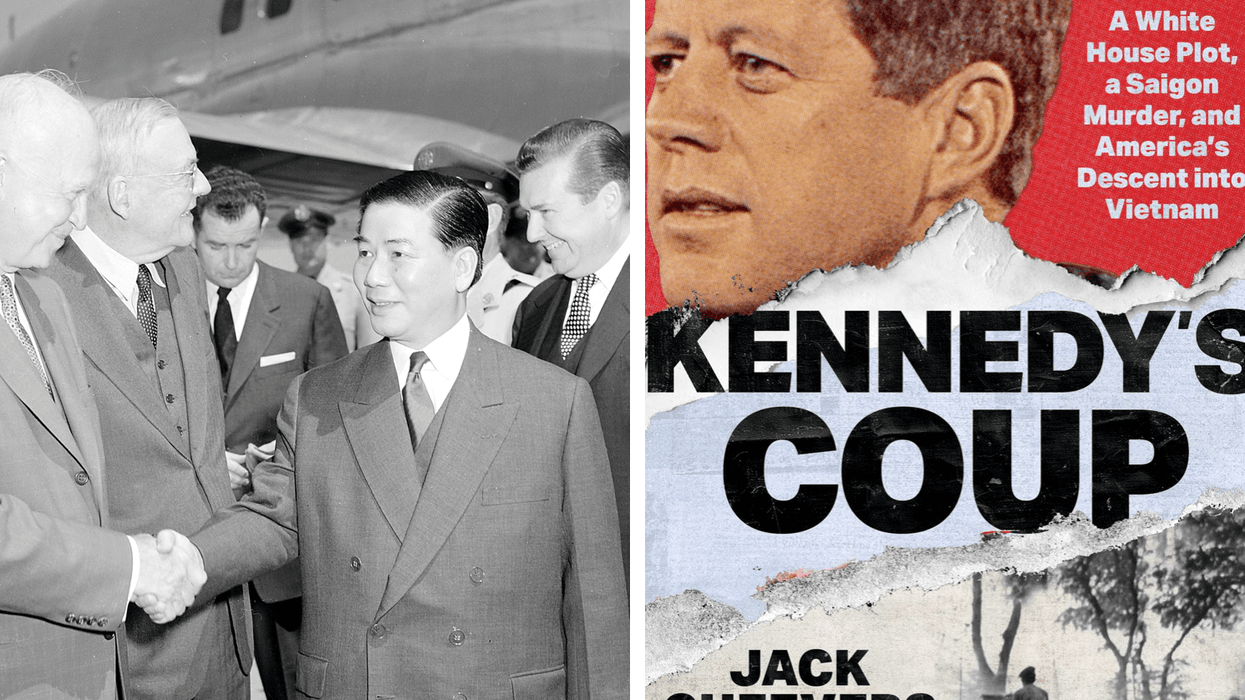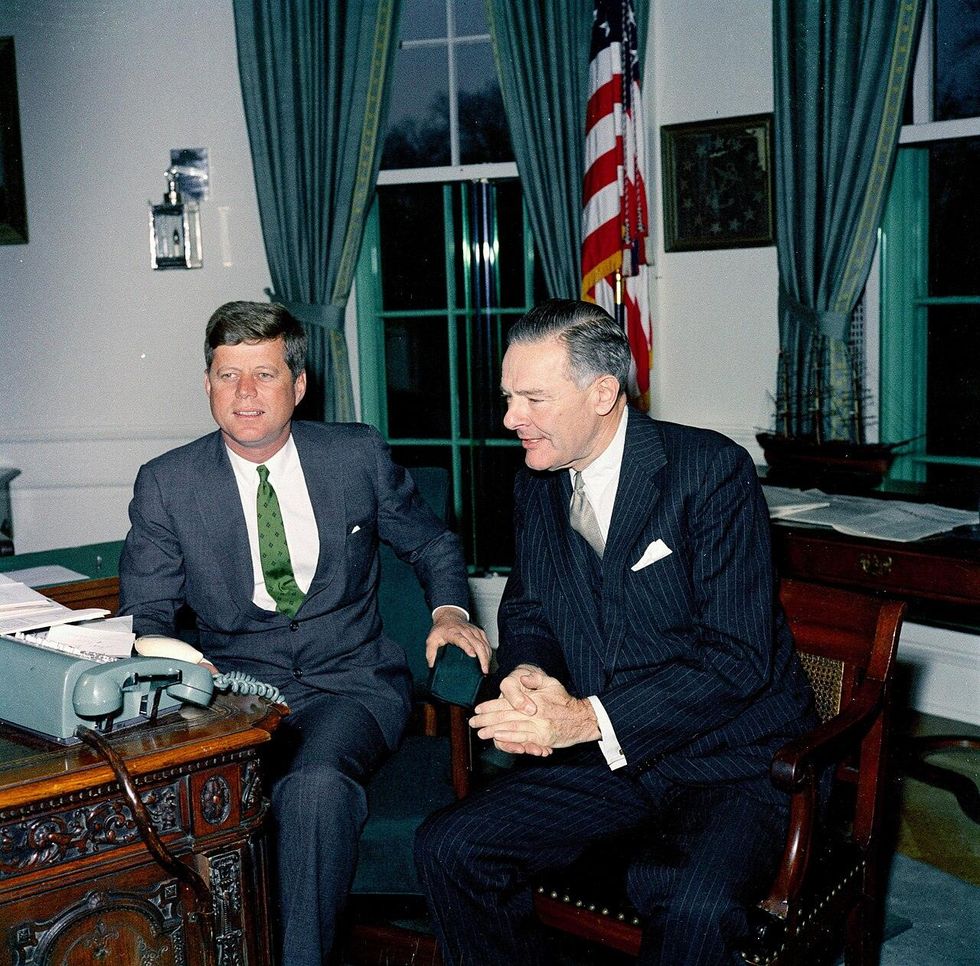It's as if the Ukraine War has all but ended — at least for American politics.
If the Republican debates had occurred last year, they would have been consumed with talk over whether Vladimir Putin was readying to roll across Europe and how weak President Biden was for not giving Ukrainian President Volodymyr Zelensky our best tanks, our most powerful fighter aircraft, the longest range missiles we had — maybe even access to nukes.
But Zelensky wasn’t anywhere near the debate stage in Alabama last night, his name not even invoked. Fitting, we guess, since the Senate failed to pass an aid package yesterday that would have sent another $60 billion to Ukraine. This, despite administration claims that the war effort is literally running out of money. Biden even took to the airwaves Wednesday to warn of a NATO war if the funding wasn’t approved.
Republicans have been souring on the aid for months now, which might account for Ukraine’s diminished importance in the conversation. It was outweighed last night by the conflict in Israel, which in itself only drew three questions: Do we send in special forces to get the eight remaining American hostages back from Hamas? What kind of punishment could be slapped on university presidents who allow “pro Hamas” protests on campus? And how do we “get” Iran for purportedly being behind it all?
Ukraine was wielded, albeit briefly, as a blunt instrument. At the very least it gave us the tiniest of glimpses into the competing world views of the hawks on the dais (Chris Christie and Nikki Haley) and their chief agitant, Vivek Ramaswamy.
Haley raised the issue (without being asked about it) by fitting it into her usual stream of Domino Theory conciousness:
“The problem is, you have to see that all of these are related. If you look at the fact Russia was losing that war with Ukraine, Putin had hit rock bottom, they had raised the draft age to 65. He was getting drones and missiles — drones from Iran, missiles from North Korea. And so what happened when he hit rock bottom, all of a sudden his other friend, Iran, Hamas goes and invades Israel and butchers those people on Putin's birthday. There is no one happier right now than Putin because all of the attention America had on Ukraine suddenly went to Israel. And that's what they were hoping is going to happen. We need to make sure that we have full clarity, that there is a reason again that Taiwanese want to help Ukrainians because they know if Ukraine wins China won't invade Taiwan. There's a reason the Ukrainians want to help Israelis because they know that if Iran wins, Russia wins. These are all connected. But what wins all of that is a strong America, not a weak America. And that's what Joe Biden has given us.”
Vivek Ramaswamy responds:
“I want to say one thing about that tie to Ukraine. Foreign policy experience is not the same as foreign policy wisdom. I was the first person to say we need a reasonable peace deal in Ukraine. Now a lot of the neocons are quietly coming along to that position with the exceptions of Nikki Haley and Joe Biden, who still support this, what I believe, is pointless war in Ukraine. …One thing that Joe Biden and Nikki Haley have in common is that neither of them could even state for you three provinces in eastern Ukraine that they want to send our troops to actually fight for. … So reject this myth that they've been selling you that somebody had a cup of coffee stint at the UN and then makes eight million bucks after has real foreign policy experience. It takes an outsider to see this through.”
To which Chris Christie retorted:
“Let me just say something here, you know, his (Ramaswamy’s) reasonable peace deal in Ukraine. He made it clear. Give them all the land they've already stolen. Promise Putin you'll never put Ukraine in Russia, and then trust Putin not to have a relationship with China.” (Christie then essentially calls Ramaswamy a liar for suggesting he never said that.)
Ramaswamy responds:
"These people are lying. These are the same people who told you about weapons of mass destruction in Iraq to justify that invasion didn't know the first thing about it if they send thousands of our sons and daughters to go die. The same people who told you the same in Afghanistan, where the Taliban is still in charge. Twenty years later, seven trillion of our national debt due to these toxic neocons. You can put lipstick on a Dick Cheney, it is still a fascist neocon today."
That was basically it. After $130 billion in U.S. taxpayer money since 2022, most of which we are being told has been spent in Ukraine. After hundreds of thousands of Ukrainians and Russians dead and maimed, Ukraine’s economy in such a state that the West has to prop it up, and NATO pledging more troops and weapons it doesn’t even seem to have, the issue was afforded a scant few minutes, and used only in the broadest of ways to pound each other. Gone was even the ghost of the old argument that the free world was at stake or that our obligation to Ukrainians was a moral imperative. It’s been reduced to a political cudgel, which is the first step to being memory holed in Washington. It happened to Iraq and Afghanistan in prior president debates 2012 and 2016.
The gist seems to be, maybe if we ignore it, it will just go away?





 President John F. Kennedy and Henry Cabot Lodge Jr. in 1961. (Robert Knudsen/White House Photo)
President John F. Kennedy and Henry Cabot Lodge Jr. in 1961. (Robert Knudsen/White House Photo)










